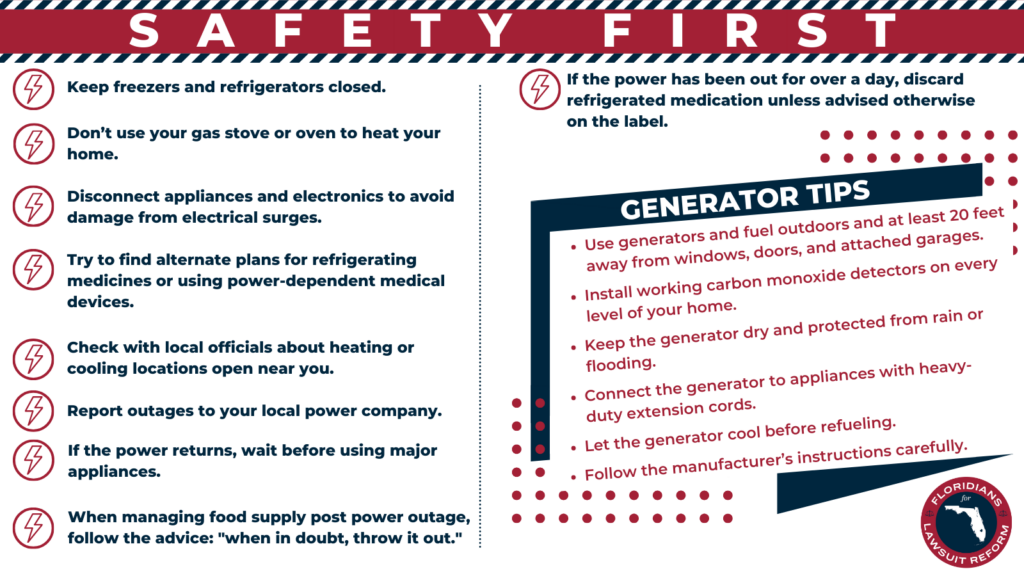
Hurricane Debby made landfall near Steinhatchee, Florida in the Florida Big Bend area as a Category 1 hurricane around 7 a.m.
Hundreds of thousands of Floridians were without power on Monday morning after Hurricane Debby‘s arrival.
The storm made landfall near Steinhatchee, Florida in the Florida Big Bend area as a Category 1 hurricane around 7 a.m. Sustained winds were 80 mph, making Debby a Category 1 hurricane at the time of landfall.
As Debby continues shake up the state and leaves more residents without any power, here’s what residents need to be aware of now and when it comes back on.
Where is Debby? Storm makes landfall as Category 1 hurricane
Location: 60 miles north-northwest of Cedar Key
Maximum sustained winds: 75 mph
Movement: north-northeast at 10 mph
Next advisory: 11 a.m.
According to reports, Debby is currently moving toward the north-northeast near 10 mph. A gradual decrease in forward speed with a turn toward the northeast and east is expected later Monday and into Tuesday.
On the forecast track, the center will slowly across northern Florida and southern Georgia today and Tuesday, and be near the Georgia coast by Tuesday night.
Power outage map in Florida
Is your power out from Debby? Here’s what to remember
Here is a list of things to consider during a prolonged power outage, according to ready.gov:
Keep freezers and refrigerators closed.
Use a generator, but only outside and away from windows.
Don’t use your gas stove or oven to heat your home. (This tip isn’t necessary for those who live Florida’s summer heat)
Disconnect appliances and electronics to avoid damage from electrical surges.
Try to find alternate plans for refrigerating medicines or using power-dependent medical devices.
Check with local officials about heating or cooling locations open near you.
You should also report the outage to your local power company:
City of Tallahassee: call 850-891-4968 or 711 (TDD), report online at Talgov.com/Outages or use the DigiTally mobile app
Talquin Electric: Sign up here for text notification and outage reporting via text
Duke Energy: Click here or call 800-228-8485
Using your generator? See safety tips
Generators can be extremely helpful and crucial during a power outage. Here’s what ready.gov says to keep in mind before operating one:
Generators and fuel should always be used outdoors and at least 20 feet away from windows, doors and attached garages.
Install working carbon monoxide detectors on every level of your home. Carbon monoxide is a colorless, odorless gas that can kill you, your family and pets.
Keep the generator dry and protected from rain or flooding. Touching a wet generator or devices connected to one can cause electrical shock.
Always connect the generator to appliances with heavy-duty extension cords.
Let the generator cool before refueling. Fuel spilled on hot engine parts can ignite.
Follow manufacturer’s instructions carefully.
My power is back on now. What do I need to do now?
Finally, the power is back! Wait a few minutes before turning on major appliances, Florida Health experts note it helps eliminate problems that could occur.
When tackling your food supply, know the saying — When in doubt, throw it out! Throw away any food that has been exposed to temperatures 40 degrees or higher for two hours or more, or that has an unusual odor, color or texture.
If the power is out for more than a day, experts say to discard any medication that should be refrigerated, unless the drug’s label says otherwise. Consult your doctor or pharmacist immediately for a new supply.
If your family and home are safe, check in with nearby neighbors and family members to let them know. See if they might want or need your help.
